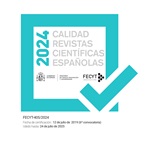Mutual trust, procedural autonomy and the fundamental right to a tribunal established by law: vPuig Gordi and Others paves the way for the surrender of the catalan leaders. (RI §426091)

Confianza mutua, autonomía procesal y el derecho fundamental a un tribunal predeterminado por ley:
Puig Gordi y otros allana el camino para la entrega de los líderes catalanes -
David Pérez de Lamo
The Catalan Government organised an unconstitutional ‘self-determination referendum (1 October 2017). Some of the Catalan leaders were detained (November 2017), tried and condemned in Spain for sedition and embezzlement (14 October 2019), and were later (partially and conditionally) pardoned by the Spanish Government (22 June 2021). But others fled from Spain to Belgium, the United Kingdom and Switzerland, thus escaping the Spanish criminal proceedings.
The Spanish Supreme Court issued European arrest warrants against the Catalan leaders residing in Belgium: Mr. C. Puigdemont, Mr. A. Comín and Mr. L. Puig (October and November 2019). The Belgian courts suspended the execution of the European arrest warrants issued against Mr. C. Puigdemont and Mr. A. Comín because, in the meantime, they had been elected Members of the European Parliament (June 2019) and, thus, enjoyed immunity. However, the Belgian courts did assess the European arrest warrant issued against Mr. L. Puig, who did not enjoy the same protection, and finally rejected its execution (7 January 2021). In particular, the Belgian courts found that the Spanish Supreme Court was not the ‘competent judicial authority’ to issue the European arrest warrant and to rule on the merits of the case pursuant to Article 6(1) of the EAW Framework Decision. A few days later, however, the Plenum of the Spanish Constitutional Court confirmed, unanimously and categorically, the ‘unquestionable’ competence of the Spanish Supreme Court to try the Catalan leaders. Previously, Belgian and German national courts had systematically rejected the Spanish Supreme Court’s European arrest warrants on equally impermissible grounds. In this context, the Spanish Supreme Court referred a number of questions for preliminary ruling to the Court of Justice concerning the interpretation of the possible non-execution grounds under the European Arrest Warrant Framework Decision.
The Grand Chamber’s ruling in Puig Gordi and Others (31 January 2023) carries significant procedural, substantive and political implications. Building on the Aranyosi-L.M. case law, the Court strikes a delicate balance between (i) the principles of mutual trust and procedural autonomy, and (ii) the protection of the fundamental right to a fair trial and a tribunal established by law pursuant to Article 47 of the EU Charter of Fundamental Rights. The judgment paves the way for the surrender of the remaining Catalan leaders residing in Belgium to the Spanish authorities.
I. Introduction. II. The Catalan Independence Movement and the SSC’s EAWs. 1. The Catalan Leaders Organise an Unconstitutional ‘Self-determination Referendum’ and Escape the Ensuing Criminal Proceedings. 2. The Belgian Courts Reject the EAWs Alleging the ‘Lack of Competence’ of the SSC to Try the Catalan Leaders. 3. The ‘Last Straw’: Belgian and German Courts Systematically Reject the SSC’s EAWs Against the Catalan Leaders on Impermissible Grounds. 4. The ‘Last Resort’: The SSC Issues New EAWs and, Upon Repeated Rejection by Belgian Courts, Refers Questions for Preliminary Ruling. III. Admissibility: A National Court Can Refer Questions for Preliminary Ruling that Indirectly Concern the Interpretation of Legal Issues Arising in Proceedings Before another National Court. IV. The Court of Justice Finds that an Executing Judicial Authority Cannot Reject a EAW on the Grounds Provided by the Belgian Courts. 1. A National Court Cannot Refuse to Execute a EAW on a Ground Stemming from National Law but Not Reflected in the EAW FD. 2. ‘Judicial Authority’ versus ‘Competent Judicial Authority’. 3. The Court Strikes a Delicate Balance Between Mutual Trust and the Protection of the Fundamental Right to a Fair Trial Pursuant to Articles 1(3) EAW FD and 47 CFREU, Drawing from the Aranyosi-L.M. Case Law. 4. Mutual Trust and Loyal Cooperation Require ‘Full Cooperation’. V. The Court Paves the Way for the Surrender of the Catalan Leaders. 1. The Application of the Two-step Examination by the Belgian Courts. 2. The Validity of the EP Decisions Waiving the Immunity of Mr. C. Puigdemont and Mr. A. Comín. 3. Final Remarks: The Amendment of the Spanish Criminal Code and the Effects on the Catalan Leaders.
El Gobierno catalán organizó un "referéndum de autodeterminación" inconstitucional (1 de octubre de 2017). Algunos de los dirigentes catalanes fueron detenidos (noviembre de 2017), juzgados y condenados en España por sedición y malversación (14 de octubre de 2019), y posteriormente (parcial y condicionalmente) indultados por el Gobierno español (22 de junio de 2021). Pero otros huyeron de España a Bélgica, Reino Unido y Suiza, escapando así al proceso penal español.
El Tribunal Supremo español emitió euroórdenes detención contra los dirigentes catalanes residentes en Bélgica: los Sres. C. Puigdemont, A. Comín y L. Puig (octubre y noviembre de 2019). Los tribunales belgas suspendieron la ejecución de las euroórdenes de detención emitidas contra el Sr. C. Puigdemont y el Sr. A. Comín porque, entre tanto, habían sido elegidos diputados del Parlamento Europeo (junio 2019) y, por lo tanto, gozaban de inmunidad. Sin embargo, los tribunales belgas sí evaluaron la euroórden de detención emitida contra el Sr. L. Puig, que no gozaba de la misma protección, y finalmente rechazaron su ejecución (7 de enero de 2021). En concreto, los tribunales belgas consideraron que el Tribunal Supremo español no era la "autoridad judicial competente" para adoptar la euroórden y juzgar el procedimiento penal, de conformidad con el artículo 6.1 de la Decisión marco sobre la Orden de Detención Europea. Pocos días después, sin embargo, el Pleno del Tribunal Constitucional español confirmó, de forma unánime y categórica, la "incuestionable" competencia del Tribunal Supremo español para juzgar a los dirigentes catalanes. Anteriormente, los tribunales nacionales belgas y alemanes habían rechazado sistemáticamente las euroórdenes de detención del Tribunal Supremo español por motivos igualmente inadmisibles. En este contexto, el Tribunal Supremo español planteó al Tribunal de Justicia una serie de cuestiones prejudiciales relativas a la interpretación de los posibles motivos de no ejecución previstos en la Decisión marco sobre la Orden de Detención Europea.
La sentencia de la Gran Sala en el asunto Puig Gordi y Otros (31 de enero de 2023) tiene importantes implicaciones procesales, sustantivas y políticas. Basándose en la jurisprudencia Aranyosi-L.M., el Tribunal establece un delicado equilibrio entre (i) los principios de confianza mutua y autonomía procesal, y (ii) la protección del derecho fundamental a una tutela judicial efectiva y a un tribunal predeterminado por ley de conformidad con el artículo 47 de la Carta de los Derechos Fundamentales de la UE. La sentencia allana el camino para la entrega de los restantes dirigentes catalanes residentes en Bélgica a las autoridades españolas.

 DIRECCIÓN / MANAGEMENT
DIRECCIÓN / MANAGEMENT